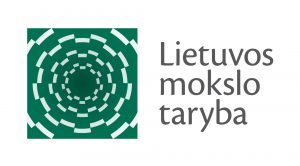„Exploring digital content ecosystems“, No. P MIP 19-445

Project No. P‑MIP‑19-445
Project title: „Exploring digital content ecosystems ”.
Project duration: from 2019-05-01 to 2022-06-30.
Project manager: prof. dr. Mindaugas Kiškis.
Summary: For countries that have invested heavily in digital infrastructure (especially Lithuania), the challenge is to fill this infrastructure with content. In leading countries, digital content ecosystems have been developing very rapidly for at least two decades and have become a driver of economic development and exports. Traditional content ecosystems based on intellectual property and collective management are no longer viable in the digital space. In digital content ecosystems, the content, the actors and the ways in which value is created are changing. Completely new forms of digital content (e.g. based on smart devices, artificial intelligence, virtual and augmented reality, etc.) are emerging rapidly. The ecosystem of digital content is the focus of this study – an interacting community of stakeholders who generate and interact with digital content. Digital content is the set of information, products, services and their relationships (interactions) available in cyberspace, the result of ongoing creative and technological development processes. Digital content ecosystems have so far not been studied as an independent object, but as a set of different, even unrelated, topics. The aim of this Project is to identify, assess and analyse the elements of digital content ecosystems (content, actors, interactions) and, on the basis of this analysis, to develop a digital content map, an ecosystem ontology and a connecting ecosystem model.
Result to be achieved: the study will lead to the development of sustainable digital content ecosystem recommendations that are practically relevant for Lithuania and many other countries, as well as for all other ecosystem actors (e.g. businesses, individual creators). The scientific results of the Project will be published in international scientific publications and presented at an international scientific event, as well as to the general public.
The Project is implemented under the Lithuanian Science Council (LSCLT) supported activity “Research Group Projects”.